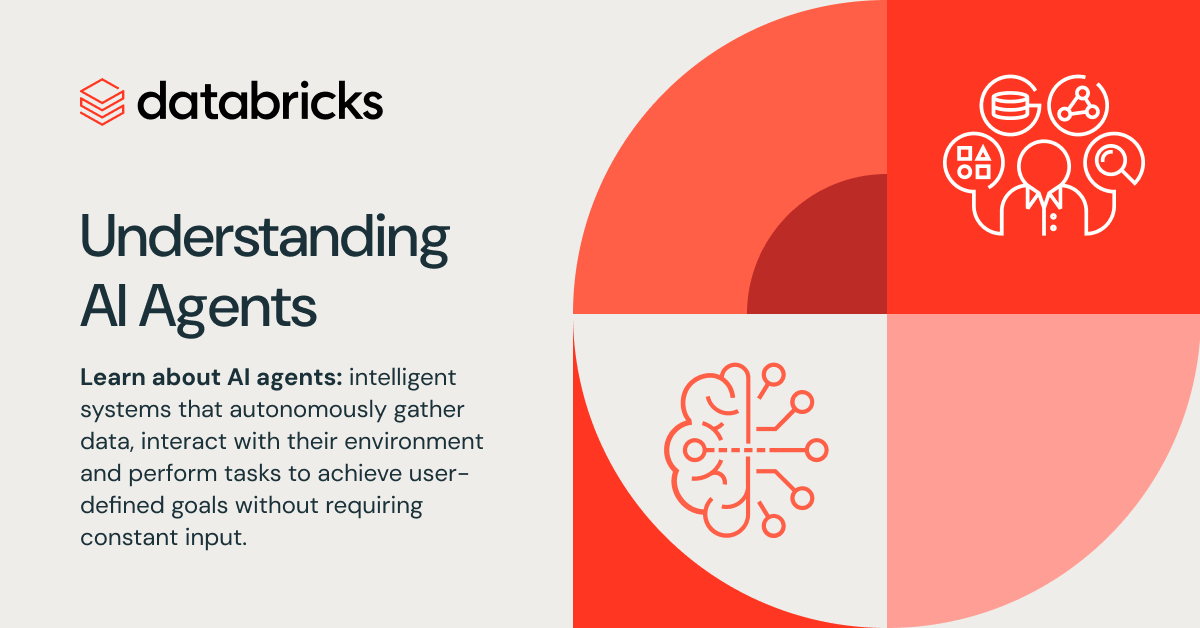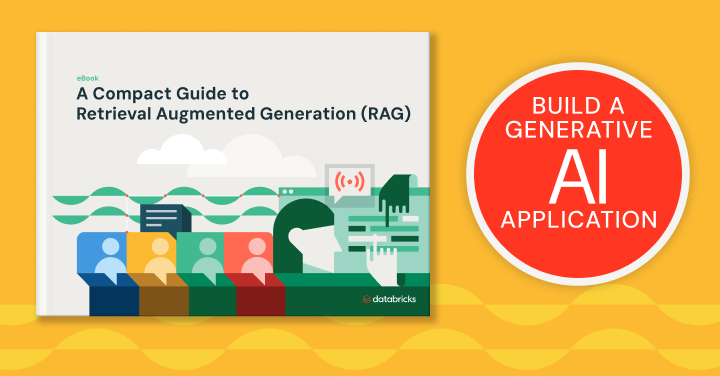Information
Discover Discover For Executives For Startups Lakehouse Architecture Mosaic Research Customers Customers Featured Stories See All Customers Partners Partners Cloud Providers Consulting & System Integrators Technology Partners C&SI Partner Program Data Partners Partner Solutions Built on Databricks Databricks Platform Databricks Platform Platform Overview Data Management Sharing Data Warehousing Governance Real-Time Analytics Artificial Intelligence Data Engineering Business Intelligence Data Science Integrations and Data Integrations and Data Marketplace IDE Integrations Partner Connect Pricing Pricing Databricks Pricing Cost Calculator Open Source Open Source Open Source Technologies Databricks for Industries Databricks for Industries Communications Media and Entertainment Financial Services Public Sector Healthcare & Life Sciences Retail Manufacturing See All Industries Cross Industry Solutions Cross Industry Solutions Customer Data Platform Cyber Security Migration & Deployment Migration & Deployment Data Migration Professional Services Solution Accelerators Solution Accelerators Explore Accelerators Training and Certification Training and Certification Learning Overview Training Overview Databricks Academy Certification University Alliance Events Events Data + AI Summit Data + AI World Tour Data Intelligence Days Event Calendar Blog and Podcasts Blog and Podcasts Databricks Blog Databricks Mosaic Research Blog Data Brew Podcast Champions of Data + AI Podcast Get Help Get Help Customer Support Documentation Community Dive Deep Dive Deep Resource Center Demo Center Company Company Who We Are Our Team Databricks Ventures Contact Us Careers Careers Working at Databricks Open Jobs Press Press Awards and Recognition Newsroom Security and Trust Security and Trust Security and Trust Read now Learn techniques to enhance LLMs with enterprise data. Learn techniques to enhance LLMs with enterprise data. Learn techniques to enhance LLMs with enterprise data. Learn techniques to enhance LLMs with enterprise data. Learn techniques to enhance LLMs with enterprise data. Learn techniques to enhance LLMs with enterprise data. Get the guide Learn techniques for fine-tuning and pretraining your own LLM using Mosaic AI. Learn techniques for fine-tuning and pretraining your own LLM using Mosaic AI. Learn techniques for fine-tuning and pretraining your own LLM using Mosaic AI. Learn techniques for fine-tuning and pretraining your own LLM using Mosaic AI. Learn techniques for fine-tuning and pretraining your own LLM using Mosaic AI. Learn techniques for fine-tuning and pretraining your own LLM using Mosaic AI. Get the guide Why Databricks Discover Customers Partners Discover Customers Partners Product Databricks Platform Pricing Integrations and Data Databricks Platform Pricing Integrations and Data Solutions Databricks For Industries Cross Industry Solutions Databricks For Industries Cross Industry Solutions Resources Training and Certification Events Blog and Podcasts Training and Certification Events Blog and Podcasts About Company Careers Press Company Careers Press See Careersat Databricks | | | | Artificial intelligence (AI) agents are a revolutionary way to leverage the power of AI. While traditional AI systems require continuous inputs from a user, AI agents are intelligent software systems that interact with their environment, gather relevant data and have agency to perform tasks to achieve a user’s goals. While humans set the goals, AI agents determine the best way to achieve those goals. To put it simply, traditional AI systems provide information based on a user prompt. Agents use available tools to help them make more accurate and informed decisions. Agents can help users generate software code, run chatbots and virtual assistants, and even develop self-driving cars. Here’s more to explore Big Book of Generative AI Best practices for building production-quality GenAI applications. A Compact Guide to Retrieval Augmented Generation (RAG) Learn techniques to enhance LLMs with enterprise data. Deliver better results using your data Learn techniques for fine-tuning and pretraining your own LLM using Mosaic AI. What’s exciting about AI agents is their adaptability. They use tools that dynamically pull up-to-date datasets to inform decisions and processes, which makes them ideal for complex and unpredictable tasks. Key principles of AI agents AI agents operate on three fundamental principles: Types of AI agents Not all AI agents are created equal; they differ based on their complexity and application. There are several common models of AI agents, and they range from basic reactive agents to more advanced learning systems, depending on their complexity and autonomy. Simple reflex agent: The simplest of the agents, these make decisions based on current conditions. For instance, a robot vacuum may only clean the room if it senses dirt. Since it doesn’t account for the history of its decisions or actions, it only acts based on simple and current inputs. Model-based reflex agent: More advanced than a simple reflex agent, these agents account for the current state of their environment while also basing their decisions on a model of the world to guide their actions. Goal-based agent: These agents plan specific strategies to achieve their desired goals. They develop a list of steps, take those steps and then evaluate whether their actions are getting it closer to the goal. Utility-based agent: Like goal-based agents, these agents plan specific action steps to achieve a goal. However, they also evaluate the best way to achieve the goal by determining the efficiency of their actions. These are ideal agents for when there are multiple possibilities for completing a given function. Learning agents: These agents can learn from their past actions and automatically adapt to future situations. They analyze their current performance and search for ways to complete the same task more efficiently. Hierarchical agents: These agents are organized by tiers, with “higher-level” agents untangling complex tasks to make them simpler and assigning those simpler tasks to lower-level agents. As each lower-level agent completes their tasks, they communicate to the higher-level agent, which collects the results. 1. Efficiency and automation AI agents are great at automating repetitive, time-consuming tasks. Jobs like data entry and processing can be performed 24 hours a day and with minimal opportunities for error. This frees organizations to spend time on higher-level, more strategic activities and gives employees opportunities for more meaningful tasks in their jobs. 2. Cost-effectiveness Implementing AI agents can lead to significant cost savings. Agents reduce the need for extensive human labor, leading to lower operational costs and more accurate production. This can have a material impact on your business’s bottom line. 3. Enhancing personalizationAI agents enhance the user experience by providing personalized interactions. For instance, an organization could employ a chatbot that learns from user behaviors and preferences to refine their responses to guide customers to outcomes that satisfy their queries. As these agents develop, they could eventually do more than simply answer questions. In marketing, for example, they could create personalized campaigns on the fly, based on what users prefer and how they behave in real time. The use cases for AI agents will vary depending on the operating environment and an organization’s goals. However, all agents share the same basic structure. Integration with systems To maximize the benefits of AI agents, businesses should focus on seamless integration with their data pipelines and ensure a feedback loop to refine agency behavior. This can offer a comprehensive picture of market trends, customer preferences or business redundancies. Agents can also analyze existing information to understand future concerns. For example. a healthcare agent could evaluate a patient’s medical history to determine a proper diagnosis and treatment plan. Meanwhile, as more devices gain internet connectivity, agents can help the Internet of Things understand specific contexts and control physical processes more effectively. Case studies of effective AI agent implementationsWhile AI agents may seem like a technology of the “future,” the reality is that agents are already at work in several industries. Finance: AI agents analyze financial data, detect potential fraud and can help customers with investment recommendations. Agents adapt their investment strategies over time and based on market performance, offering customers more insightful investment advice. Healthcare: Our medical records are robust datasets that can reveal early signs of potential health issues. AI agents in the healthcare field analyze patient medical data for any signs of health problems and suggest treatment options. Retail: AI agents in the retail space can learn customer shopping preferences and suggest personalized recommendations. They are also tasked with optimizing supply chains and tracking customer shipments. Transportation: Agents are the underlying technology within self-driving cars. They help with route planning and traffic management and keep your vehicle safe by monitoring its surroundings. These agents learn and adapt to new information to determine things like safe lane changes and overall safe driving techniques. Steps to create an AI agent Regardless of which AI agent you choose, it is important to prepare your organization for implementation. This involves several key steps. Common technical challenges and solutions Technical challenges in AI agent development include data quality issues, integration hurdles and the complexity of creating adaptive learning systems. Solutions often involve implementing strong data governance practices, using middleware for integration and employing modular architectures that allow for iterative improvements. Additional best practices for AI agents User transparency: Ensure that AI agents operate transparently by clearly communicating to your customers about how they work, what data they use and how decisions are made. Transparency builds trust with users and helps them understand the limitations and capabilities of the AI agents. User alignment: AI agents’ actions should align with the expectations and values of the users they serve. This involves understanding user goals and ensuring that the AI agent’s decisions and behaviors consistently reflect the priorities of real people. Regular user feedback loops can help maintain this alignment over time. Incorporating these practices ensures that AI agents are not only technically sound but also ethically aligned, trustworthy and user-focused, leading to more successful and sustainable implementations. AI agents are hard at work improving systems, automating tasks and helping businesses make smarter decisions. But this is only the tip of the iceberg; the future holds unlimited potential for how AI is implemented. Advancements in AI technology: As AI technology advances, AI agents will benefit from more sophisticated algorithms and models, like transformers and deep learning networks. This will make AI capable of handling complex tasks that require higher levels of reasoning and adaptation. We should also see AI mature from merely an efficiency tool to a creative tool. Users will be able to generate new ideas and concepts that are contextually relevant, like quizzes, games or even immersive content experiences. Integration with the Internet of Things (IoT): We can expect AI agents to further integrate technologies like augmented reality, virtual reality and IoT devices. This will bring with it more sophisticated automation and control as well as interactive storytelling. Ethical and regulatory considerations: The increasing use of AI agents raises ethical questions around decision-making, data privacy and transparency. Implementing robust auditing frameworks and continuous monitoring systems can help organizations ensure that AI agents make decisions aligned with ethical and legal standards, as well as eliminate any algorithmic biases. Conclusion AI agents are revolutionizing industries by helping users automate tasks and improve their accuracy and decision-making. Agents rely on existing stores of data — such as GPT — to ground their knowledge of the world, then learn from the world around them to adapt to new variables and make better decisions. As these agents become more robust, their use cases can be wide-ranging and as creative as you are. Databricks Inc.160 Spear Street, 15th FloorSan Francisco, CA 941051-866-330-0121 See Careersat Databricks © Databricks 2025. All rights reserved. Apache, Apache Spark, Spark and the Spark logo are trademarks of the Apache Software Foundation.



